Merchant Processing
Square Makes Jeopardy’s Daily Double
September 17, 2020“What is Square?”
That was the right question to the answer read by Jeopardy host Alex Trebek during an episode that aired this week. Contestant “Beth” hit a Daily Double and waged $2,000 to try and take the lead over “David” and “Joe.”
@Jack, hello pic.twitter.com/zwIzdAyTVT
— Nick D 👨👧 (@ndimichino) September 17, 2020
Square employees reacted on twitter by pointing out that the quoted transaction cost was a little out of date, but mostly took the honorable mention in stride.
We've made it! https://t.co/MZoZofrsno
— Jackie Reses (@jackiereses) September 18, 2020
Square Beats Revenue Estimates with $439 Million; Lending Business Grows 70%
November 2, 2016Square Inc’s stock jumped 7 percent on Wednesday, thanks to upbeat earnings reported Tuesday.
The Jack Dorsey-led company recorded a loss of $32 million for the third quarter, compared to $52 million in the comparable period last year, and beat analysts’ revenue estimates of $430 million, with a 32 percent jump in revenue totaling $439 million.
Square processed $13.2 billion worth of transactions through its point of sale devices, up 39 percent since last year and the company’s lending business, Square Capital grew 70 percent annually, extending $208 million through 35,000 loans. With this, it has originated over $1 billion in two years.
Square Capital loans are made by Celtic Bank and loan offers are presented using the Total Cost of Capital method, where cost is disclosed as a precise dollar amount so that potential borrowers will know exactly how much they will have to pay. By enforcing a fixed 18 month term, Square differentiates its loan product from a merchant cash advance or a purchase of future sales.
Square CFO Sarah Friar told CNBC that there is still a lot of room for growth in the Square ecosystem with existing merchants, even as the company extends credit to businesses that do not use Square for payments. Friar also said that the company is “executing on all cylinders” to beat estimates for revenue and growth.
It’s Not About Replacing Banks, Square CEO Says
October 30, 2016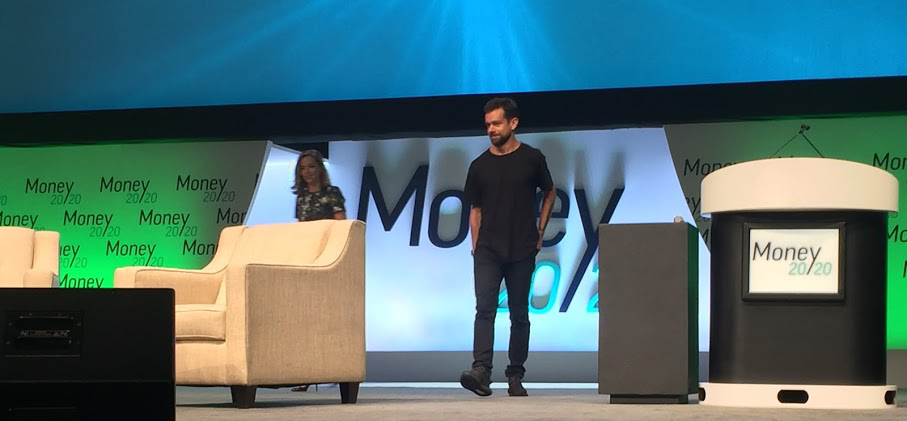
It’s not about replacing banks, it’s about making financial services more accessible, said Square CEO Jack Dorsey in regards to what his company and others in the fintech space are doing. During his fireside chat-style address at Money2020, he bemoaned chipped card transactions for being so slow while defending their decision to go public when they did.
“It took us a long time to get [transaction times] down to under five seconds,” Dorsey said. Their goal is to get it down to 3 seconds, which is 7 seconds faster than today’s industry average. The payments CEO who is also the CEO of twitter, appeared to empathize with consumers on long wait times with chipped cards. People aren’t happy,” he said. “It’s really, really, really slow.” While more security is good, he argued that it has to be complemented by a frictionless experience for consumers.
Square Capital, their lending division, was hardly mentioned during his time on stage, which seemed more a consequence of his time allotment than its relative importance. The company funded $189 million to their small business customers in the second quarter. “Our goal is to make sure we’re helping our sellers grow,” Dorsey said. “As they grow, we grow.”
When asked if the timing of their IPO last November was the right choice, Dorsey said that going public should be viewed as an enabler, not the goal. “It’s an investment vehicle,” he argued while standing by their decision. Notably, compared to OnDeck and Lending Club, Square is the only one of the bunch to be currently trading above its IPO price. The stock recently closed at $11.15, up 24% from their $9 IPO on November 19, 2015.
Square Sets Foot in UK with Squareup Europe
July 20, 2016Square is making a jump across the pond to sell its service in the UK.
The payments company incorporated Squareup Europe Ltd in London early last month.
The six year old company started by Twitter chief Jack Dorsey plans to provide payment services in Britain which it began testing last month, Reuters reported.
With a presence in the US, Canada, Japan and Australia, the company provides payment solutions to merchants through its mobile point of sale device on iPhones and iPads.
In the US, Square made the natural transition to offering loans to its customers. In Q2, Square reported a loss of $97 million but raised projections for 2016 revenues from $600 – $620 million to $615 – $635 million. With low customer acquisition costs, Square is well positioned to become an easy choice for merchants who already use the product. The company made 23,000 advances for $153 million in the first quarter before moving on to ditch the MCA program for business loans.
Why You Shouldn’t Overlook Selling Merchant Processing
January 4, 2016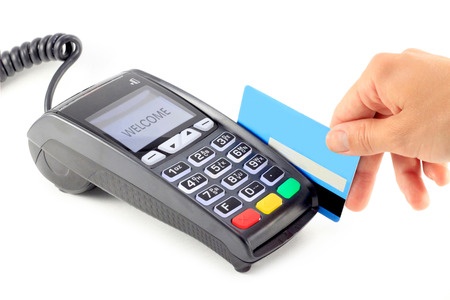 Prior to daily fixed payment business loans, there was the traditional merchant cash advance (MCA). The MCA, being the only option, required merchants to tie their need for working capital to that of their merchant accounts, either directly or indirectly, through the use of either split-funding or a lockbox account.
Prior to daily fixed payment business loans, there was the traditional merchant cash advance (MCA). The MCA, being the only option, required merchants to tie their need for working capital to that of their merchant accounts, either directly or indirectly, through the use of either split-funding or a lockbox account.
DIRECT OR INDIRECT?
Split-funding is a direct method that requires the merchant to convert their merchant account over to a chosen Independent Sales Organization (ISO), you could also refer to the ISO as a Merchant Service Provider (MSP). The MCA company contracts with an ISO/MSP who then manages the flow of the merchant’s daily credit card processing volume. A percentage is withheld and forwarded to the buyer of those receivables.
The lockbox is an indirect method to manage the flow of funds. Rather than withhold funds from the ISO/MSP, a separate FDIC insured account is established on the side for all credit card processing receipts to settle into initially, with a percentage of that volume going to the buyer and the remaining amount “swept” into the merchant’s operating account.
Nevertheless, whether directly or indirectly, the merchant account of the business owner was the foundation of the MCA approval and facilitation. Because many MCA companies also offer alternative business loans today with fixed payments, a lot of the new broker entrants do not believe that learning about the field of merchant processing is as important today as it was years ago. However, I disagree with this notion, as the purpose of our industry is the long term relationship with the client, and in many ways the traditional MCA product provides more “benefits and value” to the merchant over time than today’s business loan. Just as new broker entrants get to know all about the MCA, they should also get to know all about merchant processing.
OVER TIME, CAN THE MCA BE THE BETTER CHOICE?
The alternative business loan requires no merchant account conversion as it doesn’t tie the merchant account to the facilitation of the working capital transaction. With these loans, a percentage of gross revenues are approved with fixed terms up to 36 months on daily or weekly payments. The main benefit of this product over the MCA is the awareness of payment frequency and quantity upfront, thus, enabling the merchant to better allocate their cash flow.
However, while the traditional merchant cash advance requires the tie-in of the merchant account, there’s no fixed terms nor fixed payments as it correlates with the merchant’s sales cycle, where they deliver more during busy times, less during slow times.
When selling the merchant the long term aspects of the MCA, why not seek to get their MCA funded using the split-funding method rather than a lockbox? Doing so would provide an additional revenue stream within your client portfolio. To properly seek out this opportunity and be able to consult, convince and convert the merchant over to your MCA firm’s ISO/MSP Partner, you want to fully understand what merchant processing is all about.
WHAT IS MERCHANT PROCESSING?
A merchant account is an unsecured line of credit provided to a business from a registered ISO/MSP. The credit line enables the business to benefit from accepting Visa and MasterCard (V/MC) along with other major bankcards from their customer base, to experience the benefits of acceptance which includes better fraud management, higher average tickets, customer loyalty due to convenience, and more. V/MC are just registered card brands that manage a group of banks called “member banks”, which are banks apart of a listing of V/MC bank associations. The member banks pay V/MC dues and assessments to market their brands. You have different types of member banks, you have the Issuing Banks and then you have the ISO/MSP along with the Sponsoring Banks.
The Issuing Banks issue credit cards with credit limits to consumers after they meet credit criteria. On the processing side, you have the registered ISO/MSP and Sponsor Banks, which approve a merchant for a merchant account and process payments through a front-end authorization network, then settles them through a back-end network.
During the processing of a credit card transaction, there’s a couple of different fees that are charged. Interchange is one of the fees charged, which is how the Issuing Banks are paid. These are wholesale prices for every type of card that a merchant could potentially run at the point of sale, with new interchange pricing charts released in April and October of every year. The ISO/MSPs are paid when they mark-up interchange as well as through fees such as an annual fee, statement fee and batch fee.
WHY IS MERCHANT PROCESSING A UNSECURED LINE OF CREDIT?
The merchant account is indeed an unsecured line of credit, because when a merchant’s customer runs an order on their credit card for $500, the merchant would rather have that entire $500 upfront rather than waiting for the customer to pay off their credit card balance in full, which could potentially take years. As a result, the ISO/MSP deposits the amount in their bank account within 48 hours rather than having the merchant wait until their customer pays their credit card balance in full.
Now, if the merchant’s customer initiates a chargeback of the $500 transaction and the merchant loses the case, the $500 would have to be refunded by the merchant plus the costs of the chargeback which includes a chargeback fee and retrieval fee. If the ISO/MSP goes to get the $500 from the merchant and there’s no money in their account (let’s say the merchant has gone out of business), then the ISO/MSP who underwrote the merchant account is on the hook for the charge.
WHY SHOULD YOU SELL MERCHANT PROCESSING?
When using split funding for a merchant cash advance deal, if you switch over their processing to an ISO/MSP that your MCA firm currently split funds with, you are looking at collecting the long term residuals from the processing and the compensation from future merchant cash advance renewals. In addition, split funding is much more efficient than using a lockbox, as a lockbox usually adds 1-2 business days to the settlement process for everyone involved. Withsplit funding, the merchant can continue to receive their processing deposits as normal.
There are different types of payment processing technologies depending on what the merchant needs, if they need a stand-alone solution then that’s available in the form of a landline terminal, wireless terminal, computer software or virtual terminal. If the merchant needs a comprehensive solution then that’s also available in the form of point-of-sale systems or operational management technologies, both of which integrate merchant processing into the system and other operational aspects such as accounting, payroll, human resources, etc.
Why not just have the merchant switch over their processing to an ISO/MSP that your MCA firm currently split funds with, and collect recurring merchant processing residuals along with recurring income from merchant cash advance renewals? After all, recurring income is the lifeblood of our business.
A Return to the Fundamentals? (At Transact 15)
April 3, 2015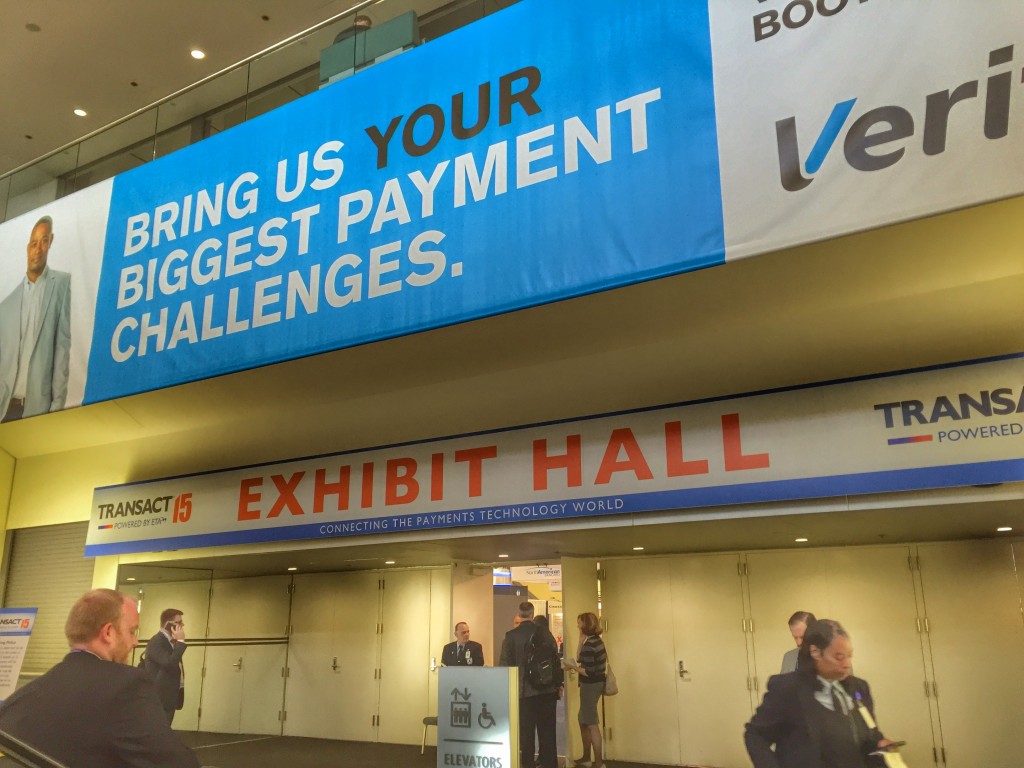 The Transact ’15 conference opened to a record crowd and there was no shortage of merchant cash advance players in attendance. Those facts were to be expected. And if you walked in and poked your head around, you might not have noticed anything to be different. Payment processors touted the latest mobile technology and at every turn security systems were being offered to prevent catastrophic breaches of cardholder data.
The Transact ’15 conference opened to a record crowd and there was no shortage of merchant cash advance players in attendance. Those facts were to be expected. And if you walked in and poked your head around, you might not have noticed anything to be different. Payment processors touted the latest mobile technology and at every turn security systems were being offered to prevent catastrophic breaches of cardholder data.
Everything looked normal… except the merchant cash advance companies.
Back to the fundamentals
Early on Wednesday, April 1st, CAN Capital kicked off a product announcement by raffling off free Apple watches. CAN’s new product is called TrakLoan, a revolutionary new loan program that allows merchants to repay via a split percentage of their credit card sales instead of fixed ACH.
April Fools?
The described advantage of TrackLoan is that there is no fixed term and that merchants only pay back at the pace that they generate card sales. Wait, Where have I heard of this before?
After slapping myself across the face a few times to make sure I hadn’t teleported to the year 2005, the rip in the space time continuum grew more apparent at the after parties.
Card processors Integrity Payment Systems, North American Bancard and Priority Payment systems are still among the hottest names in town for splits. The veteran MCA ISOs and funders are still boarding hoards of merchant accounts with them every month and are therefore building multi-million dollar residual portfolios in the process. It makes one wonder why so many people have turned their back on split-deals for the ACH methodology.
Years ago, merchant cash advance was a sideshow value-add that could be used to acquire what really mattered and what was reliably profitable, merchant accounts. Not everyone has forgotten that however.
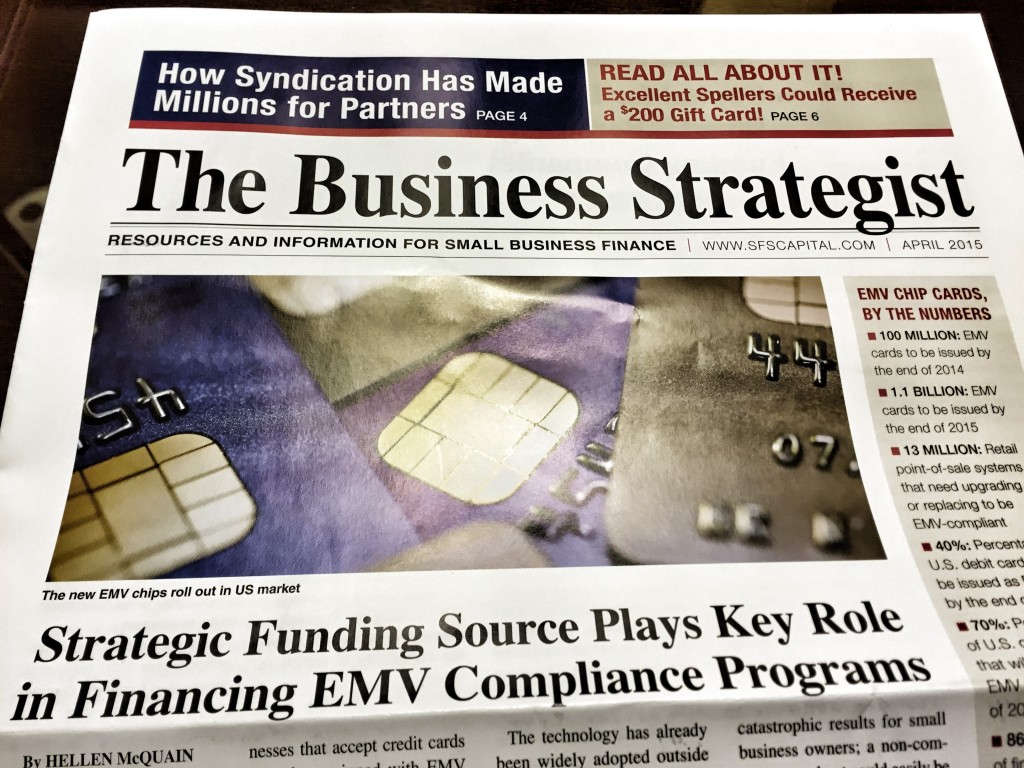 Over at Strategic Funding Source, Vice President Hellen McQuain is heading up a new merchant services division. In The Business Strategist, an SFS periodical, McQuain speaks the native tongue of the payments industry: EMV, PCI, NFC, etc.. Few, if any, of today’s new entrants in merchant cash advance could identify what those acronyms stand for, let alone explain the current climate of adoption.
Over at Strategic Funding Source, Vice President Hellen McQuain is heading up a new merchant services division. In The Business Strategist, an SFS periodical, McQuain speaks the native tongue of the payments industry: EMV, PCI, NFC, etc.. Few, if any, of today’s new entrants in merchant cash advance could identify what those acronyms stand for, let alone explain the current climate of adoption.
So, is it time to get back to the basics?
Over the last six months, I have heard more gripes from funders about how to align a broker’s interest with theirs, other than by offering the opportunity to syndicate of course. The question comes down to, how can you get a broker to care about the outcome of a deal?
The answer should be obvious. Pay half the commission upfront and the other half as part of an ongoing performance residual. That gives the broker a stake in the outcome without having to syndicate. This is not a novel idea. This was how the entire industry operated from 2005 to 2011.
Might brokers resist such a compensation plan today in an upfront-only world? Maybe. But the greatest resistance I sense from funders, especially new ones, is that automated residual payments are too complicated for their current accounting systems.
That of course begs another question. How can this possibly be? Despite the rapid growth in technology, there is an entire segment of the industry that is ill-equipped to handle transactions that were commonplace and scalable five years ago.
While today’s systems are impressive, there are times when it seems like yesterday’s advanced technology was lost in a great flood, along with all the scientific texts documenting how to build the powerful machines.
To add to this, some of today’s edgy ideas are not new. A monthly payment loan for example is not an innovative idea. Weekly payments might acquire the merchant that wouldn’t do daily payments. And monthly payments might get the merchant that wouldn’t do weekly payments. These stretched out programs might make you popular with merchant cash advance brokers that are used to selling daily payment products, but they’re in no way new. It’s a return to the basics.
In 2015 we may apparently be going full circle.

Transact 15 in San Francisco
March 29, 2015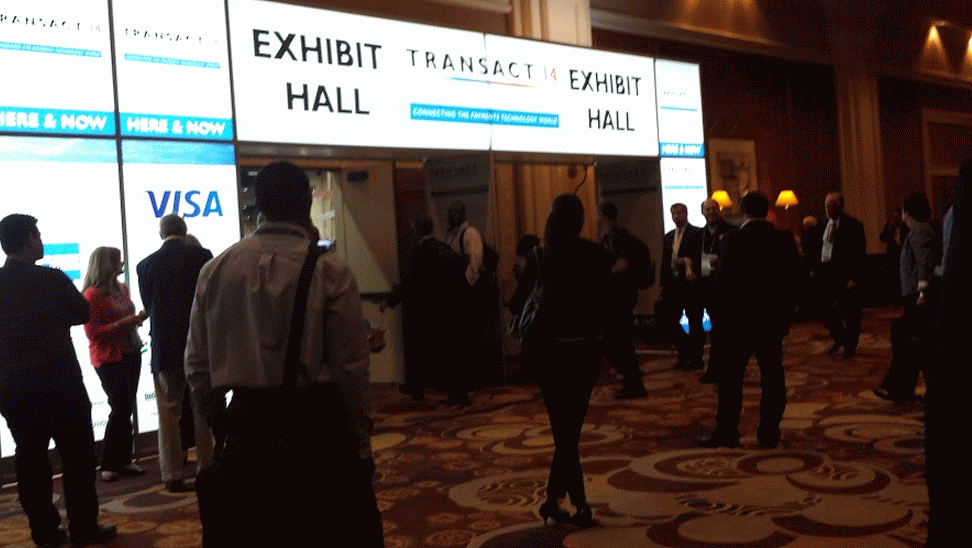 I’ll be at Transact ’15 this week in San Francisco. It used to be the only national show that the entirety of the merchant cash advance industry attended. That’s not necessarily the case anymore but it’s still a must-attend event for funders.
I’ll be at Transact ’15 this week in San Francisco. It used to be the only national show that the entirety of the merchant cash advance industry attended. That’s not necessarily the case anymore but it’s still a must-attend event for funders.
Click here for my photo blog of last year’s Transact conference.
To view the events I’ll be at this year, check out our schedule.
I will of course be keeping a live blog of the conference on the website and collecting photos, news, and interviews for use in the next issue of deBanked magazine. If you’d like to arrange a meeting, email me at sean@debanked.com.
See you in Cali!
The #payments industry will all be at Moscone in San Francisco Tuesday for http://t.co/dV0KxGwXmR – largest show in ETA's 25 year history!
— Jason Oxman (@joxman) March 27, 2015



 It’s not said often, but it has been suggested by some players in the merchant cash advance industry to introduce sales licensing requirements. Anybody can sell and broker MCAs or alternative business loans,
It’s not said often, but it has been suggested by some players in the merchant cash advance industry to introduce sales licensing requirements. Anybody can sell and broker MCAs or alternative business loans,  Now that three years have gone by, the Green Sheet is attempting to answer this question:
Now that three years have gone by, the Green Sheet is attempting to answer this question: 



























